Talking TV: Fox Weather Marks A Second Anniversary
The digital-native Fox Weather network debuted just over two years ago to square off against deeply entrenched competition — notably cable stalwart The Weather Channel.
Fox Weather, by contrast, opened its virtual doors without a cable address, instead reaching viewers via its app, website, streaming channel and select programming insertions into Fox cable real estate including Fox Business and Fox News.
In this Talking TV conversation, Britta Merwin, one of the network’s meteorologists and co-host of its morning block, shares her vantage point on the network’s growth since launch. She says its distribution strategy has been its biggest strength, that the network has kept pace with the dramatic uptick of extreme weather and that discussing climate change — often a factual sore spot for its Fox News cousin — is a key part of its ongoing weather narrative.
Episode transcript below, edited for clarity.
Michael Depp: I’m Michael Depp, editor of TVNewsCheck, and this is Talking TV, our weekly video podcast.
Fox Weather recently celebrated its second anniversary and has continued to widen its distribution since its initial launch.
Britta Merwin is one of Fox Weather’s meteorologists. She’s with me today to talk about how the network has evolved, what it’s doing to keep a competitive edge in the highly competitive weather market, and how the endless torrent of extreme weather that we experience continues to change her job. We’ll be right back with that conversation.
Welcome, Britta Merwin, to Talking TV.
Britta Merwin: Thank you. Thank you for having me.
Thanks for being here. Fox Weather is now two years old — terrible twos. What are some of the things that you’ve seen change since you’ve come on board?
Really how you find us is what’s really changed the most. I think the mission is very similar. You know, the cool thing about working for a startup is that you get to make it what you want it to be. And we’ve really had these strong pillars going into the beginning of Fox Weather. We wanted to help people, provide people with information, but do it in a way that brought it down to the kitchen table, really connected with people one to one.
And I think that that’s something that we’ve been successful at, we’ve continued to keep in our hearts. But you can find us everywhere now. I mean, really, in the beginning it was all about finding us on the app. And I think all of us on day one when we launched, we realized how big this was going to get. I mean, to see so many people download the app just within the first 24 hours was remarkable. And now two years [on], I think all my family has a different way of finding us. So, it’s amazing how many different sources there are for finding Fox Weather. I have one family member that gets it on Roku, another one on Samsung TV Plus and then you know, locally, you can just turn on the TV. It’s right there.
When you talk to people anecdotally outside your immediate family, how do you find most people are connecting with it and watching you now? Or is it not one predominant way?
You know, I hear it from all sorts of different avenues, especially people that are tied to their cell phone, which most people are, especially younger people. I still hear a lot of people that enjoy the app because the interface is so easy, to watch it live, it’s so smooth and it works so well, that I think a lot of people have that initial connection there. But it’s interesting to see the numbers. I mean, really there’s people that are taking advantage of multiple ways of finding us.
The network launched against some pretty entrenched competition. I mean, The Weather Channel, for instance, has been around for over 40 years now. What are some of the things that you and your colleagues have been doing to stand out, to define your own brand in this landscape?
You know, I think the way you access us makes it very unique. Streaming weather was not really accessible before Fox Weather showed up. And so, I think providing that really made it crucial.
My time in Houston during [Hurricane] Harvey, I think is really one of the first times in my career that I noticed how important a cell phone truly was. You know, power goes off, but many people have power on their phone. You know, they have backup power pods that they can charge up their phone. And it was amazing to see how many people were relying on that to watch our live streaming channel.
And when Fox Weather came around, they provided that on a national level, which was very unique and a new way to be able to get information that you really need. And so, I think that’s something that really sets us apart.
Also, our connection to Fox News, I think that that makes it very unique. We’re not just Fox Weather, we’re the Fox family. For instance, during Idalia, we actually simulcasted the landfall of Idalia on Fox News. So, you know, everybody had an easier way to stay up to date to know what was going on and also provided America with a unique opportunity to really see what was going on in Florida at the time. Because many times during natural disasters, it’s not just who’s going through, a lot of times it’s everybody else on the outside, right? People are interested and intrigued by what’s going on. They either have family members that are in the path of the storm, or they just have an interest in what’s happening because it is at such a notable level like Hurricane Ian.
Is Fox News, do you find, the biggest driver for audience development? Are you picking up most of your new viewers via your exposure on Fox News?
I believe it’s from multiple avenues. I definitely think that that’s a strong suit that we have. Obviously, we have a lot of experience launching new platforms. We’ve done it in various different ways within our company. So, I do think that that’s a strength and a strong suit that we have. But I do think it’s about diversifying the deck, so to speak.
Your own career in TV meteorology has taken you on an interesting trajectory so far. You started out in NBC Weather Plus was it, I think, where you did the weather for Squawk Box?
Yeah, NBC Weather Plus was the first stop.
And then you were on News 12 Long Island, KCRA in Sacramento, KPRC in Houston. How did all these jobs prepare you for what you’re doing now, co-anchoring the Fox Weather morning block?
You know, I think it really armed me with a great diverse outlook of what goes on across our country. And I find myself very blessed to be part of a big military family. So, I’ve lived many places and I have family members in many places. And I think that that has really prepared me for this time in my career because I started as a national meteorologist.
You know, when I was on Squawk Box with CNBC, I was more focused on travel weather. And now as I’m coming back to the network level, it’s a lot deeper than that. We’re really connecting with people and focusing on the weather for the entire nation at such a magnitude, right? You know, we’re covering massive natural disasters, but also going down to the things that are daily life, like hopping on a plane, getting your kid to school. So, I think being able to be blessed with the opportunity to move across the country and see different types of weather, it’s armed me with the opportunity to be able to forecast in many spots.
And that’s really another strong suit that I love about Fox Weather. You know, when you add it all up, we have 120 meteorologists and each one of us has a unique pathway just like myself. So, it’s really neat if one person, you know, might not have had experience in the Pacific Northwest, you can find somebody that has and I always say forecasting, it’s a team sport. It comes down to working as a team, looking at scientific data, as a team and figuring it out together. The more creative minds and strong scientific thinking that you have, the better your product is going to be.
The thing about TV meteorology, which you will be well aware of, is that in individual markets people form very strong attachments to their local meteorologist and their personality is a big part of their delivery. The relationship with the audience that they cultivate is extremely important.
If you have so many meteorologists in your ear in a national-facing network—and you’ve been very emphatic about the technology and the multiplatform distribution is kind of key to the brand—what about the development of, you know, what about you as a person and your individuality? Is that less important in this context? It sounds like it’s you know, it’s the tech, it’s the distribution points. Is the personality side of this a little bit less significant at Fox Weather?
I don’t believe so. I mean, especially with the surge of AI, which I think in many ways we’re still unlocking the potential there, either the potential drawbacks or also the potential strengths when it comes to that in so many different avenues of how we function in life. But when you boil it down, people are always going to want to connect with a person, and whether it’s on a local level or national level, when you are going through a natural disaster or you have a family member that is… or if you go to the macro level, for instance, Hawaii, with the Lahaina wildfires, there’s many Americans that have never been to Hawaii. They’ve never even seen the Hawaiian Islands. They have no connection to it. But that was the deadliest wildfire in modern U.S. history.
And when you have natural disasters that are hitting that level, Americans feel it. It, unfortunately, sometimes is the darkest things in reality that bring out the brightest light in humanity. And when something like that is going on, you’re always going to want to be drawn to an actual human being. So, to a person, to a face, to a feeling, to a connection that you built with somebody by watching them. And so, I think the connection that people get on the local level is exactly the same on a national level, but you might be tuning in for a different reason.
I do think a lot of our viewers are people that have a large interest in what’s going on, have family members that are being impacted that really want to understand why something is happening, the latest information of what’s going on. So, they’re up to date because they know their loved ones in it, you know, and they might not be able to get that information, but they can tune on Fox Weather and they’re going to have the latest information of exactly what’s going on in an area where they have family members, where they have friends, where they have people that they want to know what’s going on.
Now, talking of extreme weather, I mean, at this point, extreme weather has thrown away the script and there’s no longer any sense of, you know, something’s going to happen in a particular time or season or place, for that matter. How have you adjusted as a newsroom in your two years to deal with the velocity of what’s happening now in terms of extreme weather events across the country?
You know, I think a lot of the shift really has happened over the last 10 years. I think it’s sort of been a gradual increase, but definitely since we’ve launched, I feel like it’s kind of like, you know, putting the gas pedal all the way down to the floor. And so, I think it’s provided us with a unique opportunity to grow with the need, if that makes sense, because we’re happening at the same time as that accelerating, we can grow with the pace instead of playing catch up.
It’s like we’re right in line with it. And I think just the sheer number of people that we have that have the weather knowledge and have all of that scientific back up. I think it arms us in a unique position to stay up to pace, because I do think that when you look at the occurrence of natural disasters in our country, you’re going to run into more people that have been impacted by natural disaster.
If you go back 15 years ago, there’s a lot of people that might not, have never, you know encountered a flood or a blizzard, and now almost everybody has lived through some type of natural disaster. Maybe on a different level, but you’ve at least been touched by the ferocity of Mother Nature.
And I think that we have a unique position because we’re sort of growing up in these times, so to speak, that we can kind of go with it instead of playing catch up. Because I do think that for some Americans, they’re having to play a little bit of catch up. They’re not used to living with these conditions. They’re being uncomfortable because of weather for one of the first times in their life. And they’re having to be reactive instead of proactive. I think Fox Weather is in a very unique position where we’re able to be proactive. We’re not having to play catch up because we’re right there already.
Many people were skeptical at Fox Weather’s launch that the network would acknowledge the reality of climate change in its reporting. And around that time I had Sharri Berg, who runs the network, in an interview onstage, and at the time she vowed that the issue was a nonstarter — that there would be no climate change denial at all at Fox Weather. Now, you came out of NBC’s stations where there’s a lot of talking about climate change now and how it impacts meteorology. So, how are you at Fox Weather talking about climate change right now? Where does it fit into the narrative of your weather reporting?
I think we really stick to the facts and that’s how we go about it, because that’s how it should be done. It’s a science. Meteorology is a science, and so you have to stick to the facts. And you know, there is a much larger occurrence of dramatic weather because our earth is warming up and there’s no way to get around it. I mean, a big example is what we’ve seen with this hurricane season, the Pacific Ocean and the Atlantic Ocean were very warm this year. And the interesting thing is it’s an El Nino year. We should have had a very underplayed Atlantic hurricane season. And we have two names left on the list. And the season ends Nov. 30. So, we’ve gotten very lucky. We’ve only had two real impacts for the U.S., for the Atlantic. Of course, we had Hilary off the Pacific. But to have so many storms, we got really lucky this year. We really, really did. But it’s an example of how, you know, we stick to the fact of what it is.
You know, the water temperatures are insanely warm. And when you look at heat over the globe, you know, there’s, of course, natural oscillations that are part of the Earth. El Nino and La Nina. Those are transfers of water temperatures across the Pacific that are natural part of how the earth works. But then there’s other parts where we are warmer and it’s because of the impact of our life on the globe.
And so, I think it’s important to cover both things and even last week we had a great scientist on that was talking about that specific thing and about how that could impact the winter season. Because the truth is we’re going into winter with a strong El Nino pattern, but our water is hot. I mean, even water temperatures in Canada and the lakes are warmer than they have ever been. And so, we’re kind of in uncharted territory, so to speak.
How is that going to impact things? And that’s what I love about science, is that you’re always curious, you’re always wanting to find the answer, pushing for more information. And that’s what I love about being a meteorologist and an atmospheric scientist is that you’re always pushing the envelope to unearth the truth on earth, the facts and deliver it.
But, you know, Fox Weather, we give you the facts, we’re going to stick to it. We’re all scientists. I mean, my degree is in atmospheric sciences. I didn’t go to school to be on TV. I actually found my way into that avenue through internships, but my degree is in atmospheric science, and that’s what drives me and that’s what I’m passionate about.
How do viewers react when you talk about climate change? I mean, you know, the facts are the facts with regards to that phenomenon. But you know especially those coming from Fox News are not so friendly to that idea as an empirical truth. Do you run against any friction there when you talk about it?
I haven’t personally run into any friction, so it’s not something that I’ve encountered.
Now, I know the network has a pretty serious arsenal of weather tech. What do you find are the most important tools doing your job?
I find the most important tool is our people force. It is the meteorologists in this building. Do we have fancy tools? Absolutely. Do we have a network of awesome radars? Absolutely. And that is an important part. But if you don’t have the minds that can read that, that can use the tools, then those fancy tools are useless. You have to have the science behind the technology to make that marriage and make it work. And that’s what we have at Fox Weather. It’s the perfect setup.
That said, are you really not going to tell me your favorite toy at work?
Well, I have to say my favorite toy, it might sound a little silly to some people because I am a hardcore atmospheric scientist, but it really draws back to a very human element. We have an event planner on our app where you can put in your vacation. It can be a week-long … so right now I actually have a family vacation that we’re planning for in June in Florida, and I have the whole week laid out for the location that we’re meeting up, and it’s my parents, it’s my siblings.
We have been looking forward to it. And it’s showing me the weather leading up to that. And that’s really, I have to say, just from a personal standpoint, that’s one of my favorite things. Although we have fancier things, our 3D radar on the app is really great. But I have to say that’s probably my favorite feature on the app, is the planning feature. Just because it’s fun to pull it out with my kids and count down and know what the trends are and where we’re going and what we could be looking forward to.
An endeavor like this network is always about continued expansion and iteration. So, what can we expect for the third year of Fox Weather?
I think distribution will continue to grow. I mean, we’ve had such an accelerated rate just in the last two years, but I think that that is something that will continue to move forward. And I think you’re going to see more people come on board. Always when there’s something new, you know, it takes a while for people to latch on and just seeing how much has been embraced in two years. It makes me excited for the future because I think that piece is just going to continue to grow and more people kind of coming into the family.
Britta Merwin, meteorologist and morning co-host of Fox Weather, congratulations on Fox Weather’s second anniversary and thank you for coming.
Thank you, Michael. I appreciate you having me.
Thanks to all of you for watching and listening. Talking TV is back most Fridays with a new episode. You can watch all of our past episodes on TVNewsCheck.com and on our YouTube channel. See you next time.





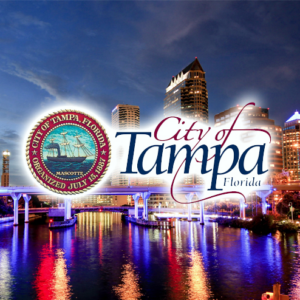

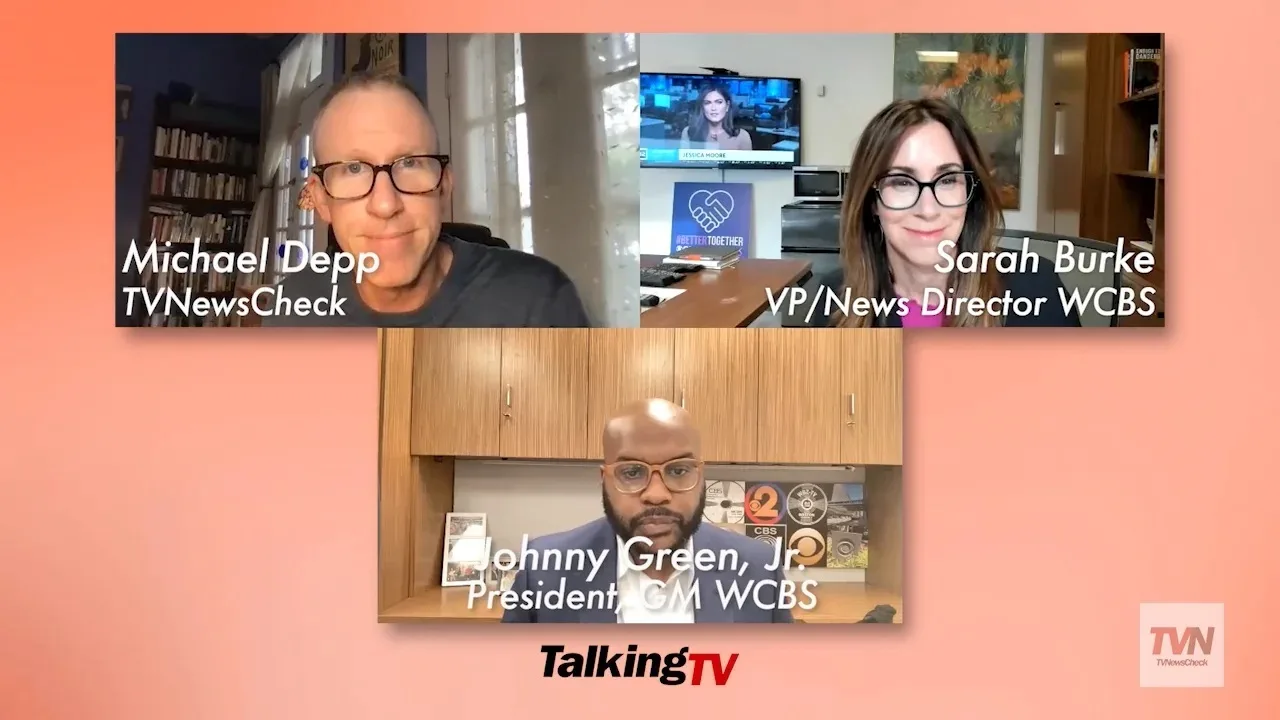
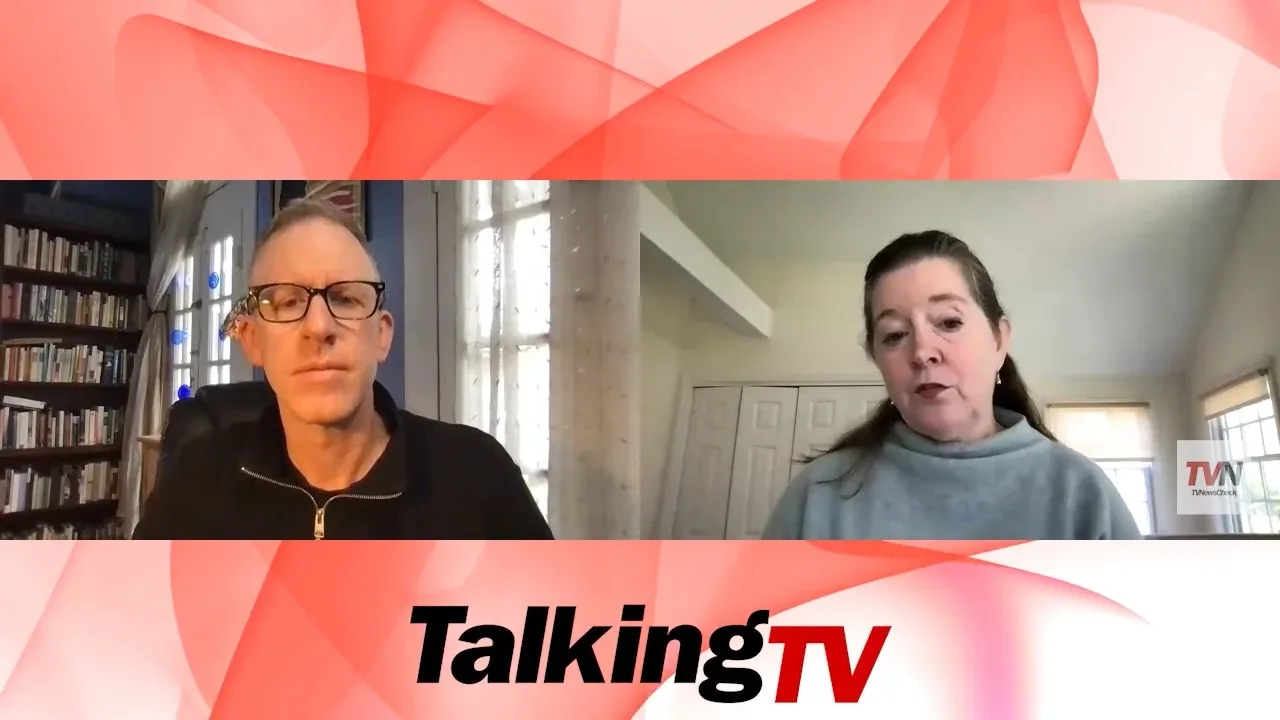

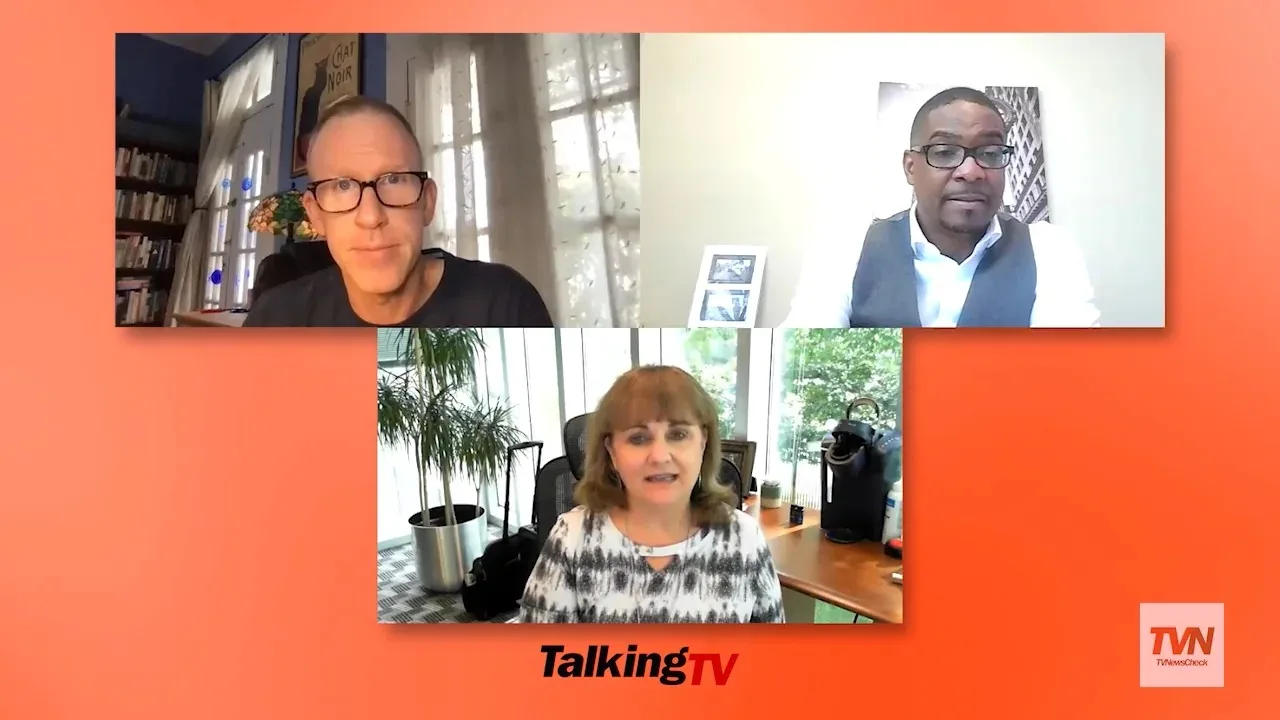
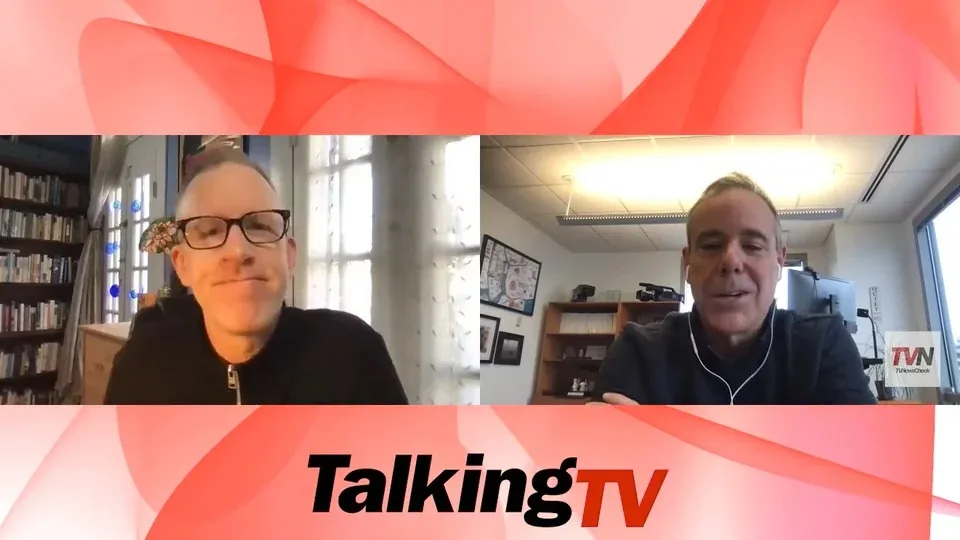

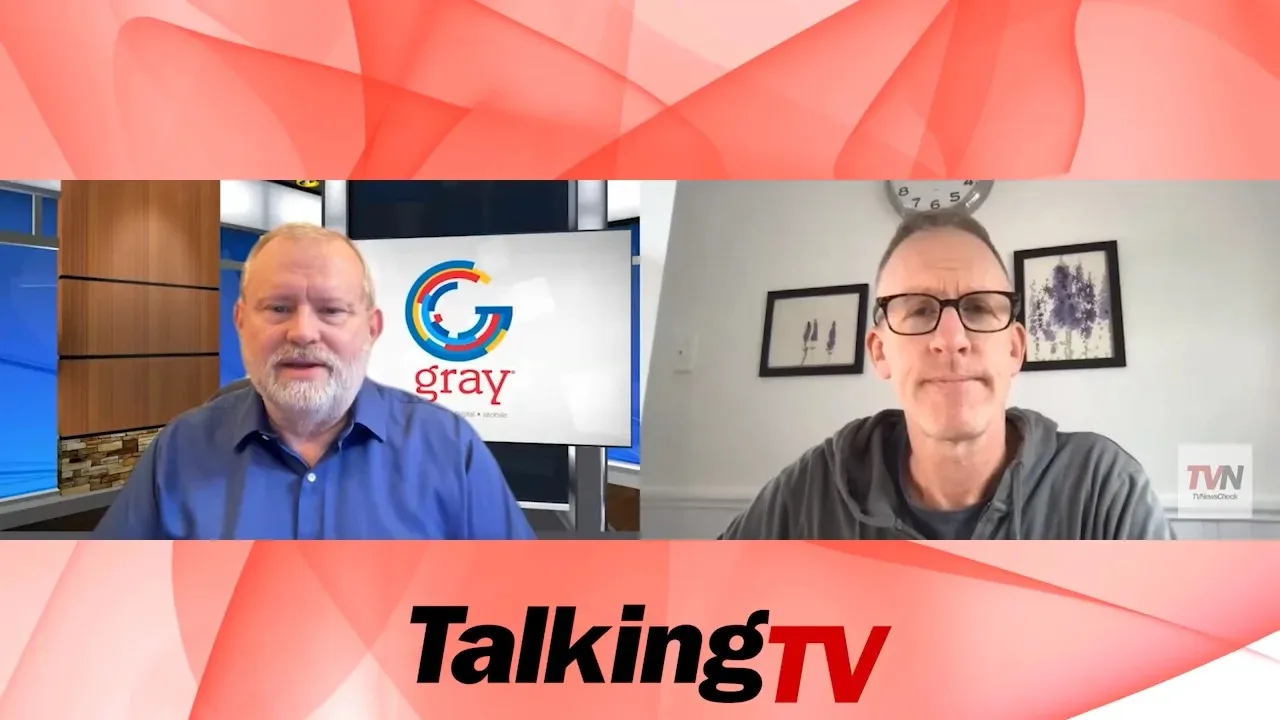
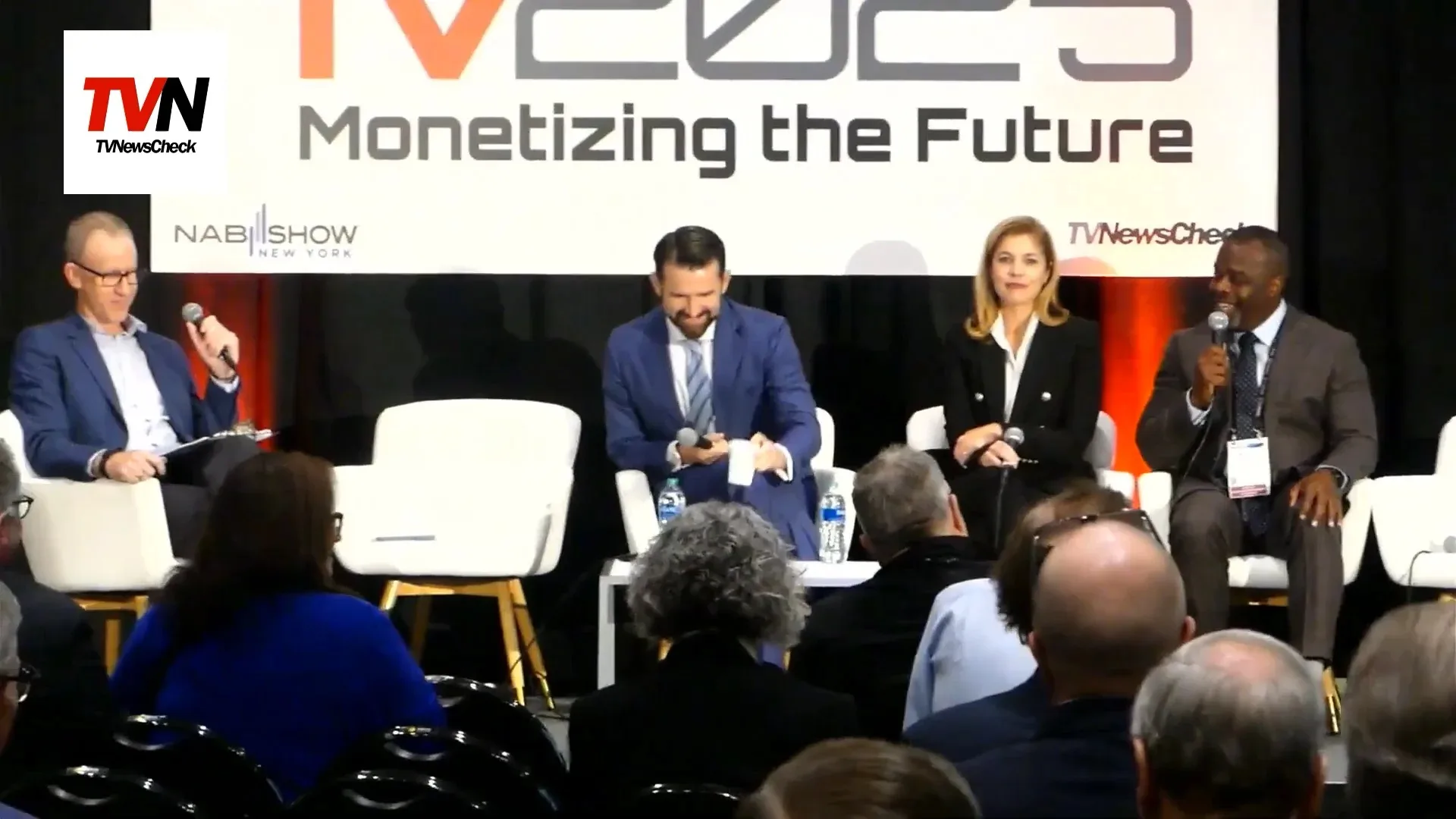





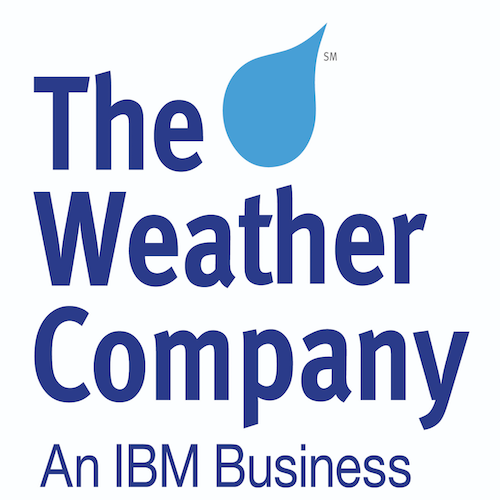

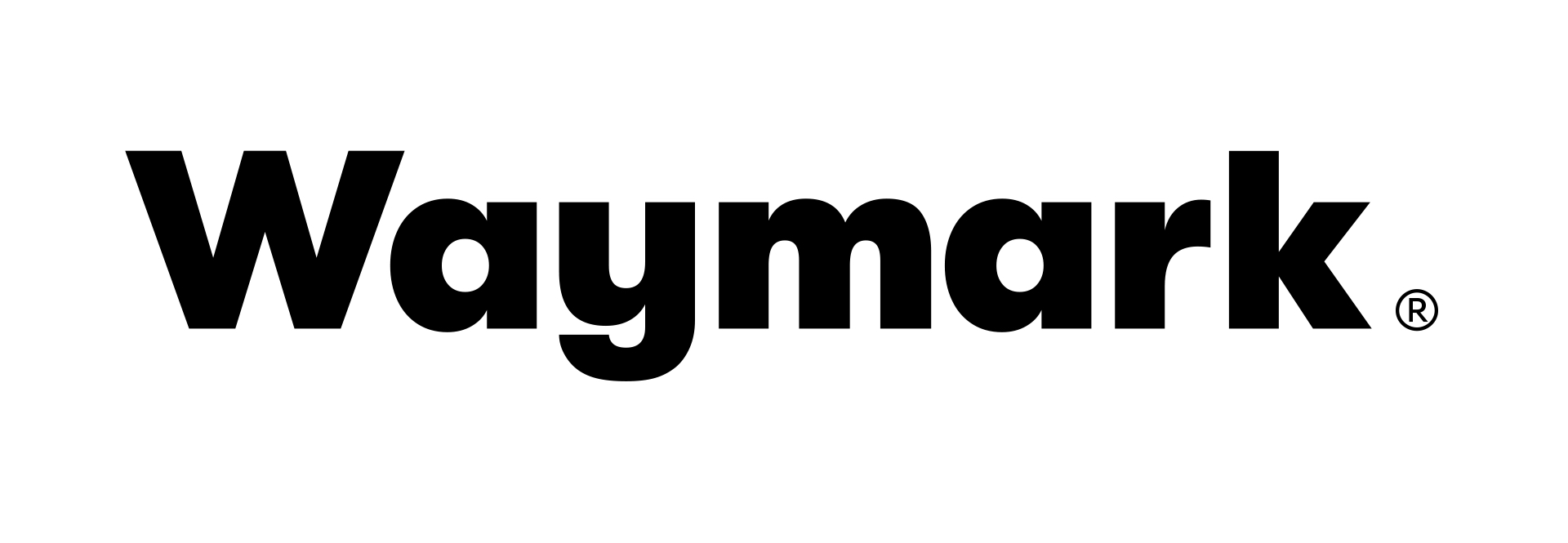








Comments (1)
kcgiants99@gmail.com says:
December 8, 2023 at 11:40 pm
I like Fox Weather pretty good channel with the news future on climate and the weather don’t see Britta all that much since I’m not a morning person. What I would like to see is local forecast like local on the 8s even if it’s just 2 times per hour since it is getting on Pay-TV, otherwise I like Fox Weather it’s better than The Weather Channel in my opinion.